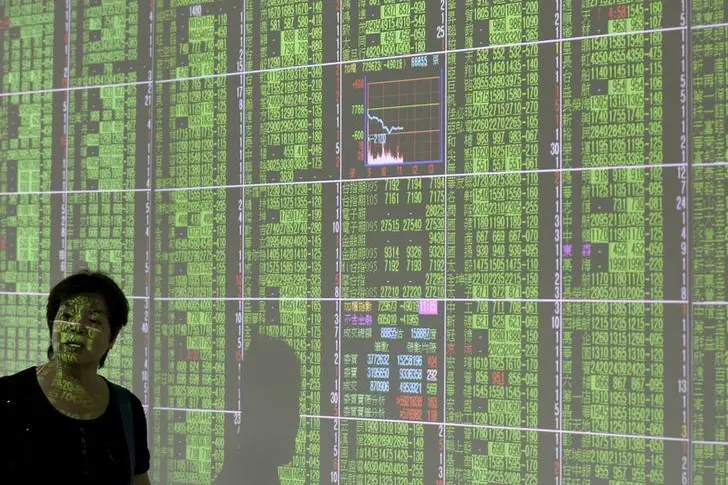PHOTO
TAIPEI - Taiwan stocks closed 3% lower on Monday even as the premier sought to reassure that the island's economic fundamentals were good, with demand for export orders strong and production activities normal.
A sudden surge in domestic COVID-19 infections, more than 700 over the past week, and Saturday's raising of restrictions in the capital Taipei, have spooked a population that had become used to life carrying on almost as normal with the pandemic previously well under control.
The government has repeatedly tried to reassure people that the economy remains strong and there is no undue cause for alarm, even amid volatility and sharp falls in the stock market.
Writing on his Facebook page, Premier Su Tseng-chang called on people not to panic or spread rumours.
"Domestic economic fundamentals are good, export order demand continues to be strong, and production is operating normally," he said.
Taiwan's benchmark stock index ended down 3%. On Wednesday it had fallen as much as 8%.
Mega International Investment Services Corp analyst Alex Huang said it was a good sign stocks had not fallen too badly.
"It shows panic has not set in," he said.
Taiwan's trade-dependent economy has performed strongly helped by global demand for its tech products to support the work and study from home boom during the pandemic.
Su said he had asked relevant financial departments of the government to keep a close watch on movements in the stock and foreign exchange markets, and that they are prepared to take stabilising measures.
The governments in Taipei, and the city next to it which has also had its COVID-19 alert level raised, have asked people to stay at home as much as possible.
The Taipei and New Taipei city governments said on Monday schools would have to teach online until May 28, while Taiwan's Centres for Disease Control said it was reinstating until June 18 a ban on foreigners not holding residence permits from entering.
The economy ministry said one of their staff had been infected, and it was disinfecting the whole building.
(Reporting by Ben Blanchard and Yimou Lee; Additional reporting by Liang-sa Loh and Emily Chan; Editing by Jacqueline Wong and Stephen Coates) ((ben.blanchard@thomsonreuters.com;))





















